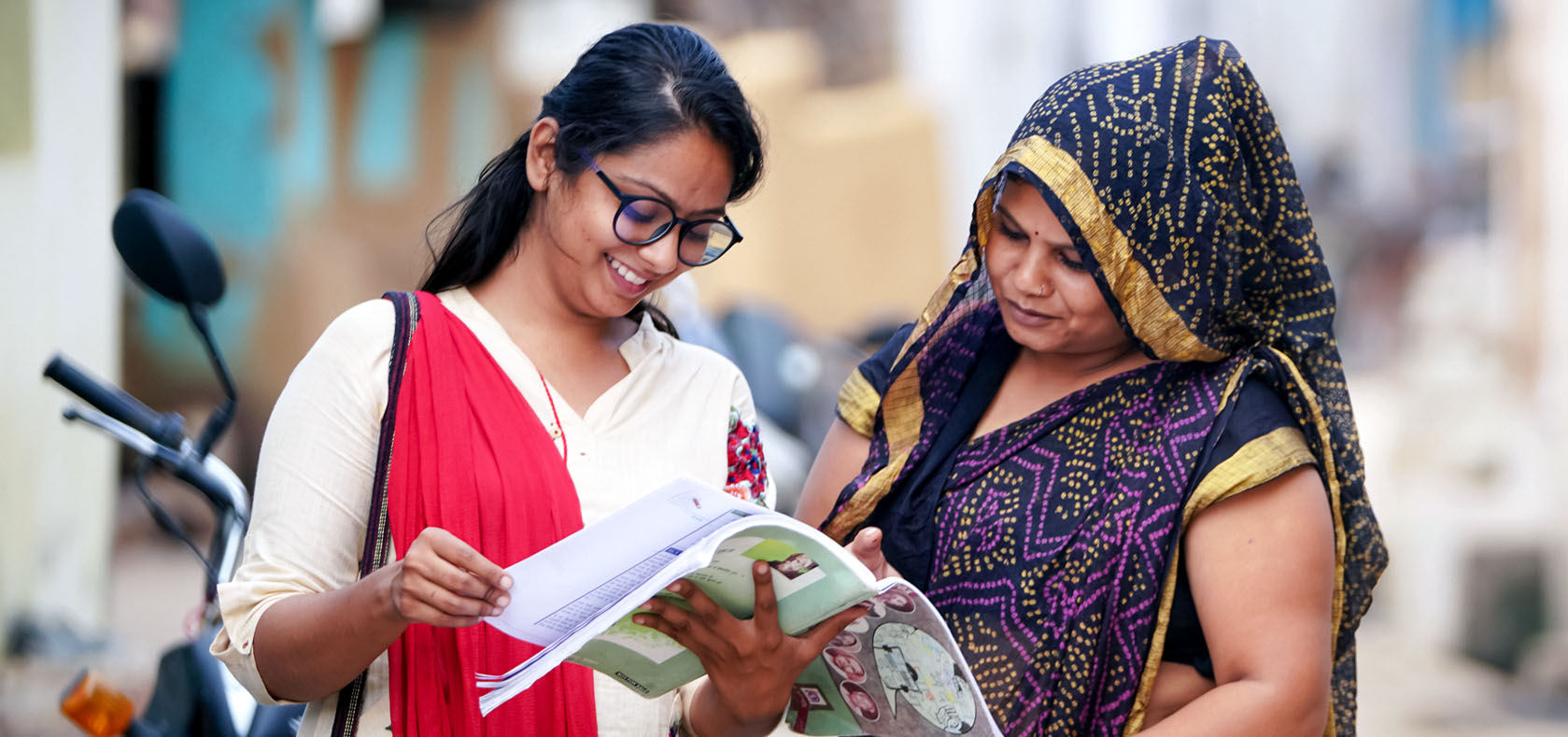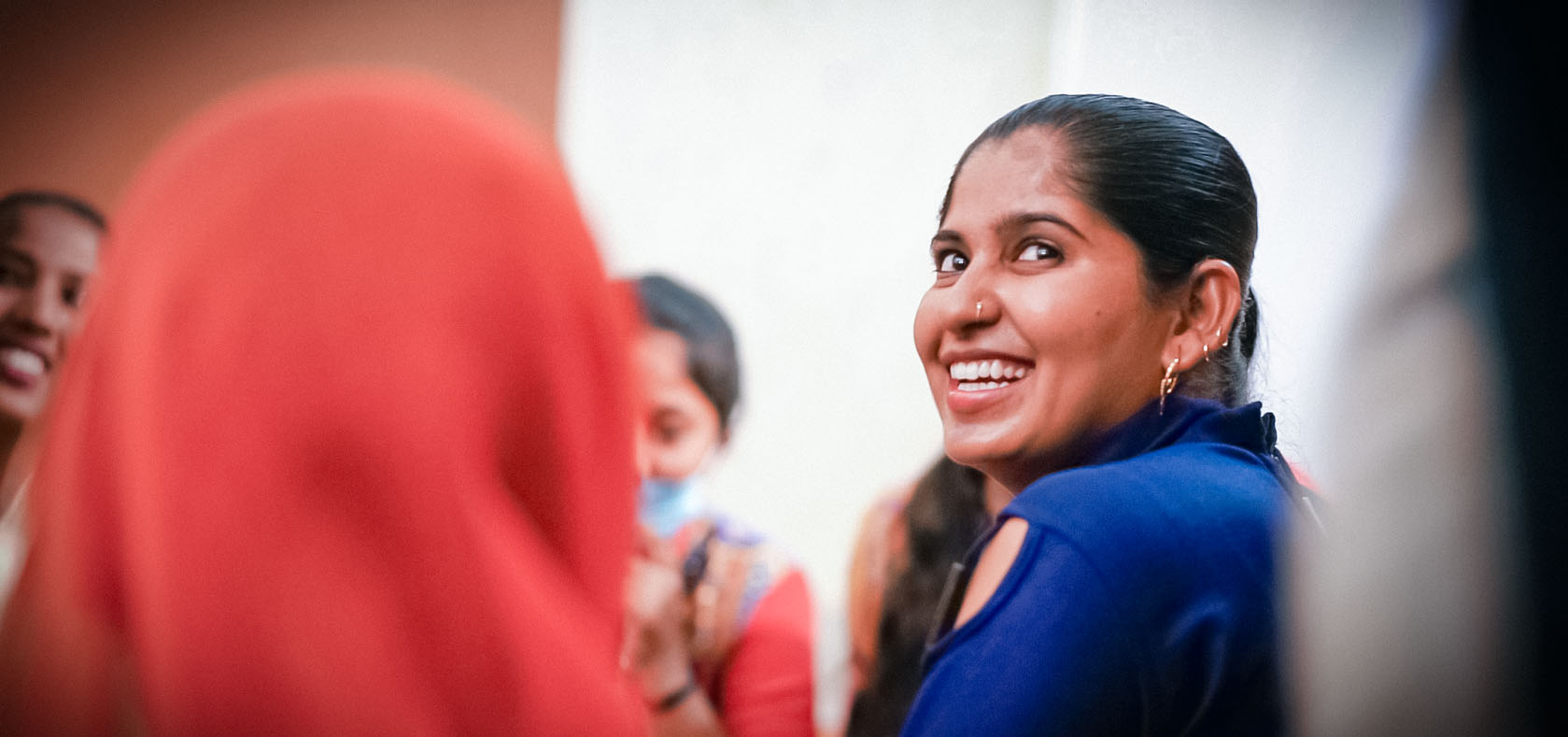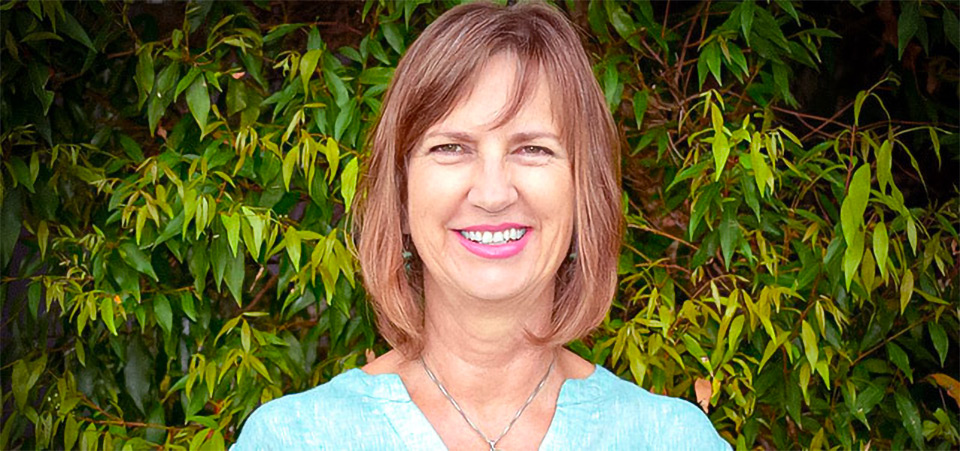
Sarita Mehra (on the right) from Baran, Rajasthan, is a participant of UN Women’s Second Chance Education Programme. She can be seen here with Project Associate Saadiya Anjum (on the left). “When I was in class five, my father told me that he couldn’t afford my education anymore. After I got married, my husband was supportive of continuing my education, but my mother in-law disagreed. The desire to study kept haunting me.” Sarita Mehra enrolled back into formal education in 2020; she is working as a trainer at the Pradhan Mantri Kaushal Kendra centre in Baran, teaching beautician courses. Photo: UN Women India
UN Women’s Second Chance Education and Vocational Learning Programme enables women to re-enter formal education, access vocational training, learn entrepreneurial skills, and connects them to employment and business opportunities. With a budget of USD 3,834,800 for 2018 – 2022, the programme has reached out to more than 50,000 women across four states in India, and impacted more than 15,000 through education, training and entrepreneurship opportunities.
The programme in India is funded by the BHP Foundation, and implemented by Professional Assistance for Development Action (PRADAN) as the lead partner along with other implementing, consortium and state government partners, such as the Department for Skilling and Entrepreneurship Development in Maharashtra and the Odisha Skill Development Authority (OSDA). The programme is part of a multi-country effort that is active in low- and middle-income countries with high levels of poverty pockets, crisis and displacement, and marginalized indigenous groups (namely Australia, Cameroon, Chile, India, Jordan and Mexico).
Our Solutions
Return to formal education
By connecting women with community educators near their homes and by providing safe, women-friendly spaces, the programme helps women return to formal education. A network of 54 community educators across the 12 programme districts under the Second Chance Education programme have enrolled 3,648 women and girls in formal education. Through a partnership with the National Institute of Open Schooling and state-level open schooling systems, the programme helps women to prepare for and complete their secondary education.
Skills, Mentorship and Safe Spaces
Investments in formal education and vocational training, combined with job placement and access to financing for women entrepreneurs can significantly raise female employment and entrepreneurship in India. Twelve Women Empowerment Hubs, one in each programme district, provide safe and women-friendly spaces to learn and develop vocational skills and small business ventures. The programme works with 67 skill training institutions connected with various government assistance programmes.
Pathways to Employment and entrepreneurship
The Second Chance Education Programme is working with women farmers to increase their household income by teaching them new and sustainable techniques to improve their crop yield. To date, more than 8,000 women have learned about using quality seeds, pest management and organic farming techniques. The programme has also linked women who complete their vocational training to jobs and financial support to start small businesses.
Shaping policies to educate and empower women and girls
While supplying women with tools and opportunities to learn and grow their incomes, the programme influences enabling policies to support women and girls. In July 2020, the Rajasthan State Women’s Policy waived school fees for women and girls returning to formal education based on the Second Change Education Programme recommendations, a big win for women and girls looking for a second chance. UN Women is working with the National Skill Development Corporation (NSDC) to create an enabling vocational training ecosystem for women learners.
Working during the Covid19 Crisis
In rural India, where the health infrastructure is weak, female health workers were at the front line of the Covid-19 response. The programme trained and certified 10,000 nurses and nurse assistants across 20 states to provide front-line health services safely during the pandemic. Through local partners, the programme delivered 4,800 medical kits for Covid-19 patients, 840 oximeters, and personal protection equipment for local health workers when the crisis peaked with the second wave of infections.
Download the programme brief to learn more.
For regular updates, see the Second Chance Education newsletters


